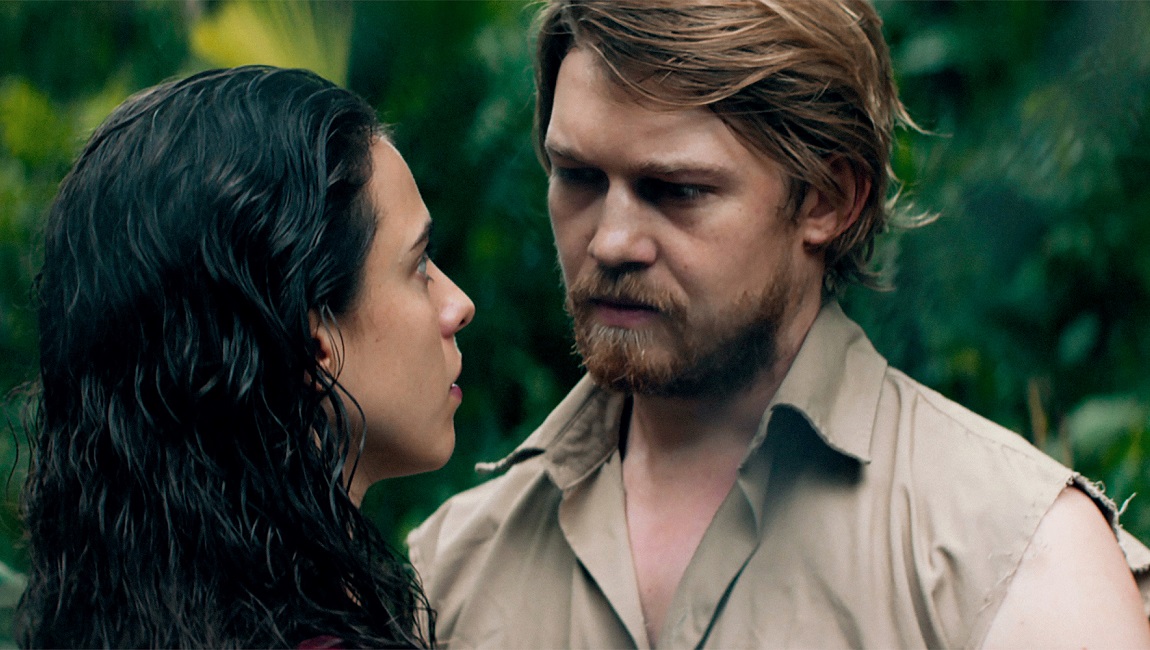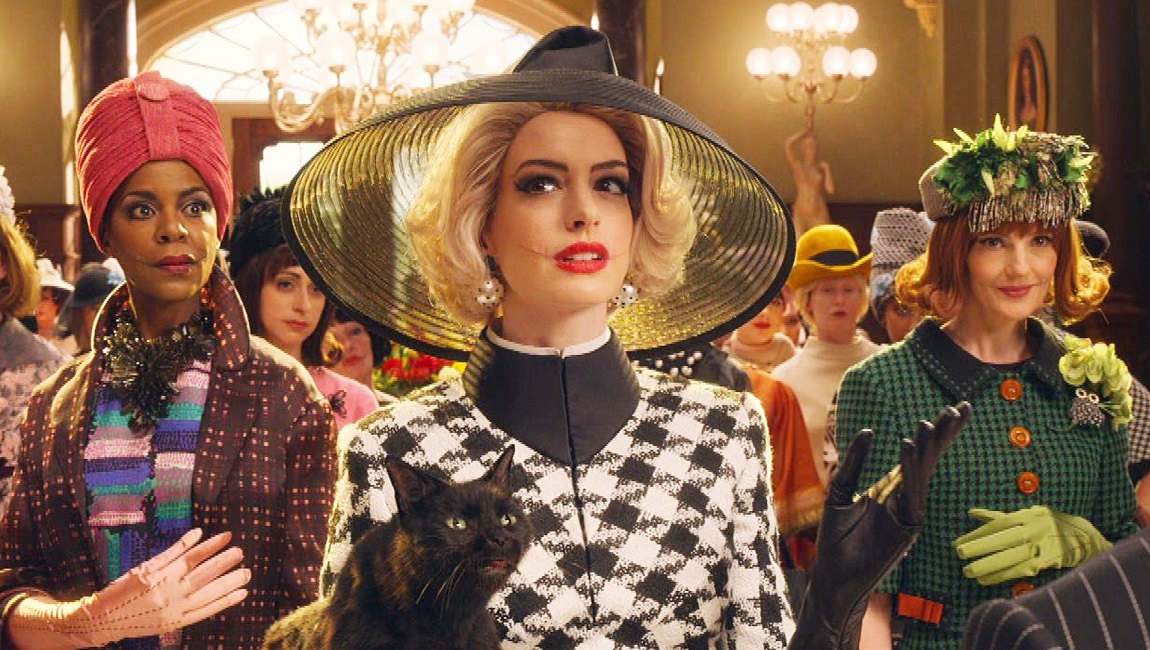Stars at Noon is the perfect externalization of a lovers-on-the-run experience, a fitting send-up to its source material.
A gnarled, lightbulb-spotted, two-dimensional plastic facsimile of a red palm tree in an empty plaza and a close-up of Margaret Qualley’s face are the introductory images of Claire Denis’ Stars At Noon, a prologue of sorts that already pledges fidelity to the bruised lyricism of author Denis Johnson’s prose, whose 1986 novel serves as the source material. Johnson often times alternated between dilapidated landscape portraiture and extreme bouts of — drug/alcohol/sex-influenced — subjectivity. Previous adaptations siloed out the more palatable aspects of his fiction (like the redemptive arc of Jesus’ Son for Alison Maclean’s film of the same name), so Denis is easily the most simpatico partner for Johnson’s story of an unmoored, and perhaps delusional, white American woman and Englishman within the Nicaraguan Revolution, now transposed to the present day.
Denis forgoes the gradual scene-setting of Johnson’s book to instead unleash Qualley’s remarkable freneticism as both incongruously and machine-like as possible, the specifics of her hardscrabble endurance as a stranded, and eventually documentless, wannabe journalist never anything less than visibly pained. Her Trish Johnson is a perfect encapsulation of American entitlement, maneuvering, and exploitation, taking advantage of a country’s unrest for her own writerly gains (which fail), and then traipsing around with condescending, broken Spanish, demanding air conditioning and rum. Picking up British oilman Daniel Dehaven (Joe Alwyn) at the Intercontinental Hotel bar, and sleeping with him for fifty dollars (“fifty US”), she unwittingly makes herself even more of a player in the USA-abetted conspiratorial activities that she’d otherwise remained on the peripheries of. This isn’t to imply that Daniel is some sort of paragon of espionage; he, too, is just as adrift, prone to the bumbling mistakes innate to one in over their head.
The two become joined at the hip, so to speak, mutual lifelines in an environment intent on expelling them. Denis, always attuned to the immediacies of intimacy, has always been conversely drawn to those of obliviousness, a temperament detectable in L’intrus and White Material, Stars At Noon’s undeniable sister films. Logged with beer and rum, Trish and Daniel play at giggly adventurers, ducking brutal police in modest chase scenes, before falling into bed again. The rain repeatedly obfuscates the surroundings, and the attendant mud works its way up Daniel’s white designer suit — Denis maps her characters’ halting progress toward the Costa Rican border on their bodies, the earnest disheveledness of the beginning devolving into near destitution, where clothes have to be washed in a hotel shower with bar soap, a tic of the perennial transience of Johnson’s work. The border is a Beckettian goal, a never-fulfilled promise of liberation, a confirmation of the unchanging social landscape.
Stars At Noon is reliably protean, Denis reprising her haphazard union of variegated camera styles after the somewhat uniform Both Sides of the Blade, and her almost erratic rhythms coalesce into a sublime whole, the perfect externalization of a lovers-on-the-run experience. The weather and landscape interrupt, knotted powerlines stretch across the top of the frame, funeral processions dutifully trudge along in the foreground, and Denis is fascinated by it all, these distracted tangents justifying themselves as the circumstances worsen. This atmosphere retains its impossible romanticism with two constants: sex and low-level haggling against a larger conspiratorial backdrop. Villainy is diffuse, and the painted-on smile of a third act Benny Safdie — whose performative stiltedness is straight from Pakula and Polanski — is more discomfiting than the ubiquitous soldiers; respites are disorientingly intrusive, and even oneirically transcendent, like when the lovers find what has to be the only DJ in the world playing Tindersticks to an empty room. Viscous and violent settings engender a purity of feeling, so much so that it becomes easy to wholeheartedly care for these two idiots, who despite their unfamiliarity with one another, generate a rickety trust for a new age.
Published as part of NYFF 2022 — Dispatch 2.







